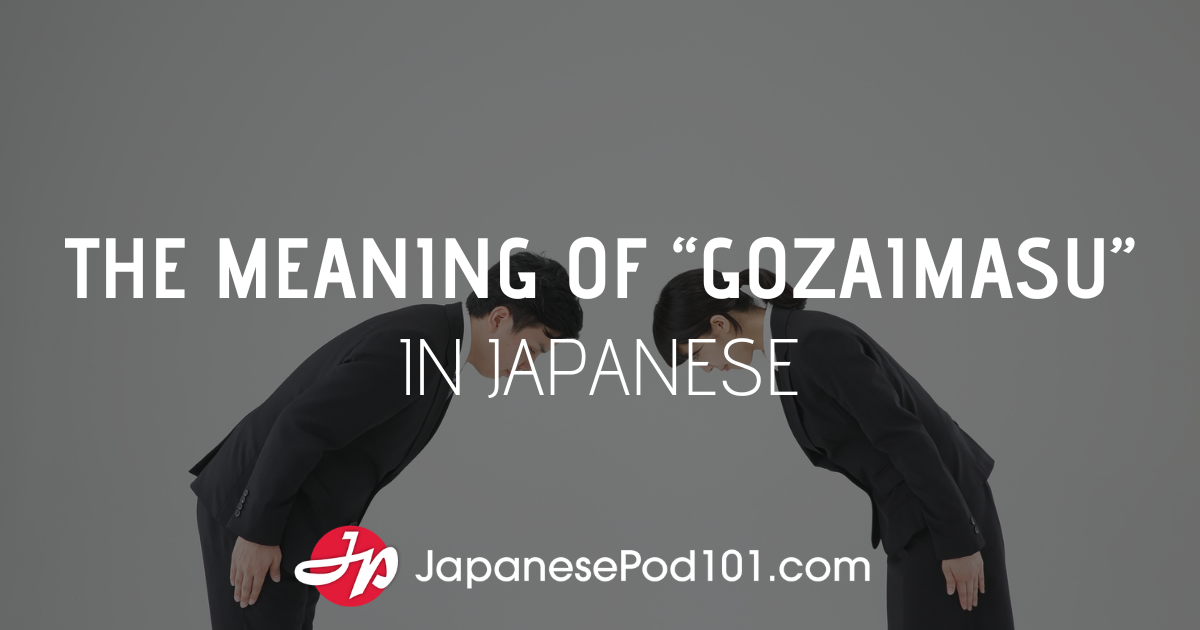Archive for the 'Learn Japanese' Category
January 9, 2011
Japanese Word of the Day – read (verb)
Learn a little Japanese everyday with the free Japanese Word of the Day Widget. Check back daily for more vocabulary!読む (yomu) read (verb)私たちは、今学期に10冊の本を読まなければならない。Watashi-tachi wa, kongakki ni ju-ssatsu no hon o yomanakereba naranai.We have to read ten books this school semester.その少年は、公園で本を読んでいる。Sono shōnen wa, kōen de hon o yonde iru.The boy is reading a book in the park.テレビを消して本を読みなさい。Terebi o keshite, hon o yominasai.Turn off the televison, and read a book.その男の子は公園で本を読んでいる。Sono otoko no ko wa kōen de hon o yonde iru.The boy is reading a book in the park.テレビを消して、本を読みなさい。Terebi o keshite, hon o yominasai.Turn off the televison, and read a book.女性は雑誌を読んでいる。Josei wa zasshi o yonde iru.The woman is reading a magazine.お母さんが娘に本を読んでいる。O-kā-san... Show more
January 3, 2011
Japanese Word of the Day – land (verb)
Learn a little Japanese everyday with the free Japanese Word of the Day Widget. Check back daily for more vocabulary!着陸する (chakurikusuru) land (verb)その飛行機は10時に飛行場に着陸します。Sono hikōki wa 10-ji ni hikōjō ni chakurikushimasu.The plane will land at the airport at ten o'clock.午後10時に着陸するgogo 10-ji ni chakurikusuruland at 10 PMOwn a blog or website? Share free language content with your readers with the Japanese Word of the Day with Audio Widget. Click here for instructions on how to embed and customize this free widget!
January 2, 2011
Japanese Word of the Day – bread (noun)
Learn a little Japanese everyday with the free Japanese Word of the Day Widget. Check back daily for more vocabulary!パン (pan) bread (noun)私は、古くなったパンを湖のアヒルに与える。Watashi wa furuku natta pan o mizūmi no ahiru ni ataeru.I feed old bread to the ducks at the lake.ハムとスイスチーズはライ麦パンと一番良く合う。Hamu to suisuchīzu wa raimugipan to ichiban yoku au.Ham and swiss cheese are best on rye bread.私は、湖でアヒルに古くなったパンをやる。Watashi wa, mizuumi de ahiru ni furuku natta pan o yaru.I feed old bread to the ducks at the lake.ハムとスイスチーズは、ライ麦パンによく合う。Hamu to suisuchīzu wa, raimugi pan ni yoku au.Ham and swiss cheese are best on rye bread.毎週、日曜日の朝はパン屋でパンとケーキとクッキーを買う。Maishū, nichi-yōbi no asa wa pan-ya de pan to kēki to kukkī o kau.Every Sunday morning we buy bread, cake and cookies... Show more
January 1, 2011
Japanese Word of the Day – spider (noun)
Learn a little Japanese everyday with the free Japanese Word of the Day Widget. Check back daily for more vocabulary!クモ (kumo) spider (noun)クモがクモの巣で待っている。Kumo ga kumo no su de matte iru.The spider is waiting in the spider web.蜘蛛は八本の足を持っている。Kumo wa ha-ppon no ashi o motte iru.A spider has eight legs.蜘蛛が自分の身を守っている。Kumo ga jibun no mi o mamotte iru.The spider is protecting itself.八本足のクモhachi-hon ashi no kumoeight-legged spiderクモの巣にいるクモkumo no su ni iru kumospider in a spider web八本足の蜘蛛ha-ppon ashi no kumoeight-legged spiderOwn a blog or website? Share free language content with your readers with the Japanese Word of the Day with Audio Widget. Click here for instructions on how to embed and customize this free widget!
December 30, 2010
Japanese Word of the Day – cake (noun)
Learn a little Japanese everyday with the free Japanese Word of the Day Widget. Check back daily for more vocabulary!ケーキ (kēki) cake (noun)私の家では、日曜の夜、デザートにケーキを食べます。Watashi no ie de wa, nichi-yō no yoru, dezāto ni kēki o tabemasu.We eat cake at my house every Sunday night for dessert.ろうそく付きのバースデーケーキrōsoku tsuki no bāsudē kēkibirthday cake with candles誕生日ケーキtanjōbikēkibirthday cake一切れのチョコレートケーキhito-kire no chokorētokēkipiece of chocolate cakeOwn a blog or website? Share free language content with your readers with the Japanese Word of the Day with Audio Widget. Click here for instructions on how to embed and customize this free widget!
December 29, 2010
Japanese Word of the Day – Saturday (noun)
Learn a little Japanese everyday with the free Japanese Word of the Day Widget. Check back daily for more vocabulary!土曜日 (do-yōbi) Saturday (noun)私は毎週土曜日に、五時間、家事をするWatashi wa maishū do-yōbi ni, go-jikan, kaji o suru.I do housework every Saturday for five hours.今日は9月10日、土曜日です。Kyō wa ku-gatsu tōka, do-yōbi desu.Today is Saturday, September 10th.土曜日の夜do-yōbi no yoruSaturday night土曜日に予定がないdo-yōbi ni yotei ga naino plans for SaturdayOwn a blog or website? Share free language content with your readers with the Japanese Word of the Day with Audio Widget. Click here for instructions on how to embed and customize this free widget!
December 27, 2010
Japanese Word of the Day – headphones (noun)
Learn a little Japanese everyday with the free Japanese Word of the Day Widget. Check back daily for more vocabulary!ヘッドフォン (heddofon) headphones (noun)その女の子は、ヘッドフォンで音楽を聞いている。Sono onna no ko wa, heddofon de ongaku o kiite iru.The girl is listening to music with headphones.そのヘッドフォンは本当に高いです。Sono heddofon wa hontō ni takai desu.Those headphones are really expensive.ヘッドフォンで音楽を聴くheddofon de ongaku o kikulisten to music with headphonesヘッドフォンで音楽を聞くheddofon de ongaku o kikulisten to music with headphonesOwn a blog or website? Share free language content with your readers with the Japanese Word of the Day with Audio Widget. Click here for instructions on how to embed and customize this free widget!
December 26, 2010
Japanese Word of the Day – play a musical instrument (verb)
Learn a little Japanese everyday with the free Japanese Word of the Day Widget. Check back daily for more vocabulary!演奏する (ensōsuru) play a musical instrument (verb)楽器を演奏できますか?Gakki o ensō dekimasu ka?Can you play a musical instrument?楽器を演奏するgakki o ensōsuruplay a musical instrumentOwn a blog or website? Share free language content with your readers with the Japanese Word of the Day with Audio Widget. Click here for instructions on how to embed and customize this free widget!
December 24, 2010
Japanese Word of the Day – salt (noun)
Learn a little Japanese everyday with the free Japanese Word of the Day Widget. Check back daily for more vocabulary!塩 (shio) salt (noun)塩を取って。Shio o totte.Pass the salt.海の塩umi no shiosea salt少量の塩shōryō no shioa dash of salt食卓塩shokutakuentable salt塩コショウshoikoshōsalt and pepperOwn a blog or website? Share free language content with your readers with the Japanese Word of the Day with Audio Widget. Click here for instructions on how to embed and customize this free widget!
December 22, 2010
Japanese Word of the Day – pain (noun)
Learn a little Japanese everyday with the free Japanese Word of the Day Widget. Check back daily for more vocabulary!痛み (itami) pain (noun)彼女が別れを告げたとき、とても辛かった。Kanojo ga wakare o tsugeta toki, totemo tsurakatta.There was a lot of pain when she said goodbye.腰痛を患うと、それを和らげるのはとてもむずかしい。Yōtsū o wazurau to, sore o yawarageru no wa totemo muzukashii.It is very hard to get comfortable when you suffer from back pain.背中の痛みsenaka no itamiback ache辛い時期を過ごすtsurai jiki o sugosugoing through pain背中の痛みsenaka no itamiback pain肩の痛みkata no itamishoulder pain肩の痛みkata no itamishoulder painOwn a blog or website? Share free language content with your readers with the Japanese Word of the Day with Audio Widget. Click here for instructions on how to embed and... Show more









